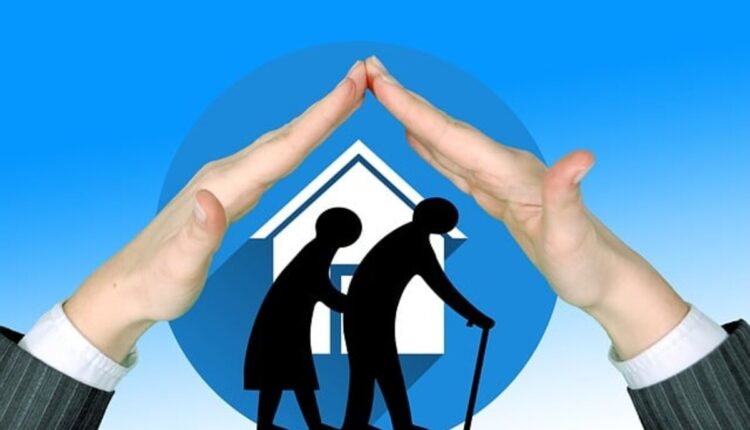Nursing home malpractice occurs when an elder care facility or its staff mistreats or ignores elderly patients in its care, whether out of intentional harm or simply negligent acts. The best guide to finding nursing home neglect attorneys.
An effective nursing home negligence lawyer should possess an in-depth knowledge of state and federal laws related to this area of litigation and have experience successfully handling these types of cases.
Medical Neglect
Medical neglect is a form of nursing home malpractice that occurs when the healthcare needs of a patient are not fulfilled, leading to severe illness and disability, with lasting emotional and financial repercussions for them and their loved ones. Understanding medical neglect will allow you to take appropriate action if it happens in your loved ones’ lives.
Medical neglect includes failing to seek medical attention when necessary, refusing treatment from health care professionals prescribed by them, and not adhering to recommended guidelines for treating an illness. Certain factors, including poverty and limited access to health care, may contribute to medical neglect – along with beliefs or cultural/religious considerations held by caregivers that play an influencer role.
As it stands, most cases of medical neglect are entirely preventable. The key is making sure caretakers are adequately informed of their options for addressing medical issues and are given access to clear two-way communication with medical professionals. Physicians should work closely with families to find solutions that respect cultural and religious traditions while still providing necessary medical attention for children. This ensures that all children receive the necessary treatment without restrictions or limitations being placed upon them by authorities. A thorough risk-benefit analysis must always take place prior to restricting any child from seeking care or any restrictions being placed upon them by authorities imposed upon them by authorities imposed prior to restricting them from receiving necessary treatments from healthcare professionals or restricting them from receiving necessary treatments themselves.
Physical Abuse
Nursing home abuse cases are serious matters, often involving physical assault against elderly patients in nursing homes. Other forms of nursing home abuse may include financial exploitation (where funds are taken without consent from patients), sexual misconduct, or verbal attacks such as cursing or harsh language being spoken towards residents in harsh tones.
Nursing home workers typically commit most cases of nursing home abuse; however, other residents can be guilty as well. For instance, if staff notice one resident has a tendency to attack others or is suffering from dementia and cannot communicate clearly, then they must protect fellow residents and report any incidents to authorities immediately.
Tragically, most cases of nursing home abuse and neglect go unreported by anyone. According to studies by state nurse aide registry agencies, CNAs working in nursing homes may not always know how to recognize signs of abuse and neglect and report their suspicions, thus leaving these instances of mistreatment undetected by anyone.
Dalli & Marino’s New York nursing home abuse lawyers assist victims in securing just compensation for their losses. Our legal team carefully considers all available sources of evidence, consulting experts as needed to preserve important pieces of evidence—such as medical records, witness statements, photographic evidence, or documentation of prior incidents or complaints. Dalli & Marino will also pursue punitive damages as necessary.
Mental Abuse
Emotional abuse in nursing homes is often overlooked, yet its consequences can be just as harmful to its victims. Stress and anxiety caused by emotional abuse often contribute to physical illnesses that further worsen it, further harming those living there.
Emotional abuse comes in many forms but is often defined by actions such as humiliation and belittling, as well as forcing untrue beliefs onto victims, often by way of mental manipulation. An abusive caregiver might, for instance, deny feelings expressed by patients or make them feel foolish by disagreeing with them while sometimes isolating patients from family and friends altogether.
Mental abuse remains a prevalent problem in nursing homes despite its difficulty to detect. One factor could be understaffing, making it easier for caregivers to hide the mistreatment of residents, as well as an inadequate screening of prospective caretaker candidates who end up mistreating residents. Failure to conduct comprehensive background checks could result in hiring errors and lead to mistreatment of residents by caretakers.
Due to the difficulty associated with recognizing emotional and mental abuse, individuals must understand its signs. Banyan Treatment Centers Boca Raton can assist in recognizing harmful behaviors, providing the knowledge necessary for understanding their effects, and taking steps necessary to protect health, independence, and self-respect.
Self-Neglect
Self-neglect is one of the primary reports received by state agencies investigating abuse, neglect, and exploitation of elderly adults. This form of neglect involves adults refusing to meet their own needs – from poor hygiene practices and failing to take medications or food as prescribed to refusing medications and food altogether. Depression, poor sleep habits, dementia, and frailty often accompany this behavior, and self-neglect can either be deliberate or accidental; sometimes, an attempt at maintaining control or an unreasonable fear of nursing homes might play a part in it all.
Elders who self-neglect have three times higher risks of death compared to non-self-neglecting seniors and an increased rate of hospital readmission after discharge from hospital care. Unfortunately, due to limited research on this subject matter, it can be challenging to diagnose and treat.
Some libertarians might object to taking a medical approach to self-neglect, but given that health effects often play a role in this condition, physicians should be part of any solution. The Chicago Health and Aging Self-Neglect Instrument (SN-37) provides a framework for diagnosing this condition and assessing its severity; however, its classification system for mild, moderate, or severe self-neglect is lacking, while refusing assistance is considered a significant indicator for severe self-neglect.

